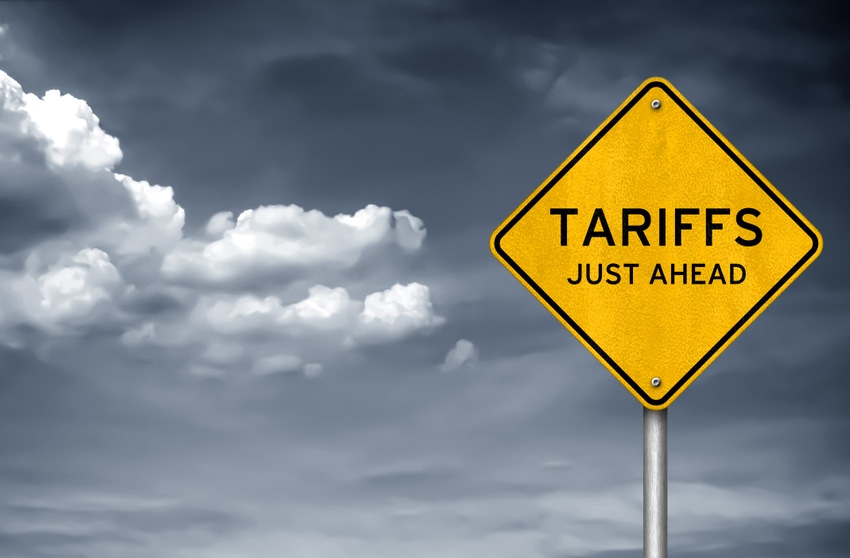
Trade disputes during the Trump era saw the resurrection of “national security” tariffs such as Section 232 tariffs authorized by the President and executive branch. A new bipartisan bill introduced in the Senate would prevent potential president abuse of the tariffs.
The Bicameral Congressional Trade Authority Act would make any presidential-proposed tariffs or quotas applied for national security purposes (via Section 232 authority) subject to review and approval by Congress prior to going into effect.
Under Section 232 of the Trade Expansion Act of 1962, Congress conditionally delegated certain tariff and quota authority to the executive branch in the event an import is a threat to national security. Historically, Section 232 investigations have been rare and have infrequently resulted in imposition of tariffs – prior to 2018, a president last took action under Section 232 in 1986.
However, the previous administration used Section 232 widely, unilaterally imposing tariffs on steel and aluminum and conducting investigations into six additional products. In the 60-year history of the Section 232, approximately one-fourth of investigations have occurred in only the last four years.
On Sept. 24, the Biden administration launched a new Section 232 investigation into the national security impacts of imported Neodymium-iron-boron (NdFeB) permanent magnets—rare earth magnets—which are used in the production of wind turbines, electric vehicles, and a number of other items. In addition, during a speech on Oct. 4, U.S. Trade Representative Ambassador Katherine Tai said the administration would be looking to “all kinds of tools available to us” to combat China’s actions.
Related: Ambassador Tai looks to correct course with China
Sens. Pat Toomey, R-Pa., and Mark Warner, D-Va., introduced the bipartisan legislation to prevent presidential abuse of “national security” tariffs by reinstating congressional authority over trade.
“For too long, Congress has allowed presidents to unilaterally impose tariffs by invoking spurious claims of ‘national security’ – regardless of whether or not the import in question poses any genuine threat to national defense. These wrongfully imposed tariffs have increased costs for American consumers, substantially burdened domestic manufacturers, and have undermined our relationships with our allies,” says Toomey. “Through the Bicameral Congressional Trade Authority Act, we can restore Congress’ authority by once again requiring tariffs imposed for so-called ‘national security’ purposes to be approved by Congress, including those previously enacted on steel and aluminum in 2018.”
To prevent future misuse of Section 232 authority, the Senators’ bill would require Congressional approval in the event the executive branch chooses to adjust import levels. It would also restore the national security intent to the statute, by defining the term “national security” to include articles specifically related to military equipment, energy resources, and critical infrastructure.
“As our economy continues to recover from the economic crisis, we must ensure that Congress has a say in any future actions that could restrict trade or impose consequential changes,” says Warner. “This legislation, which we introduced under the last administration, will help prevent any future president from abusing national security authorities to impose unilateral tariffs. It will also help guarantee that any efforts to crack down on unfair or illegal trade practices are strategic and done in concert with our allies.”
Additional original co-sponsors include Sens. Tom Carper, D-Del., John Cornyn, R-Texas, Mike Crapo, R-Idaho, Dianne Feinstein, D-Calif., Chuck Grassley. R-Iowa, Maggie Hassan, D-N.H., Ron Johnson, R-Wis., Tim Kaine, D-Va., Angus King, I-Maine, James Lankford, R-Okla., Mike Lee, R-Utah, Jerry Moran, R-Kan., Ben Sasse, R-Neb., Tim Scott, R-S.C., Brian Schatz, D-Hawaii, Jeanne Shaheen, D-N.H., and Thom Tillis, R-N.C.
Several outside groups have voiced support for the Bicameral Congressional Trade Authority Act, including the National Foreign Trade Council, Tariff Reform Coalition, Business Roundtable, U.S. Chamber of Commerce, North American Association of Food Equipment Manufacturers and the Association of Equipment Manufacturers.
Association of Equipment Manufacturers President Dennis Slater applauds the reintroduction of the Bicameral Congressional Trade Authority Act as it would ensure that future tariffs or quotas put in place under national security grounds are reviewed by Congress.
“U.S. equipment manufacturers continue to pay artificially inflated prices for steel, which is undermining American manufacturing and our industry’s ability to compete globally,” Slater says. “This legislation will add much needed transparency and accountability to a flawed process and make sure the Department of Defense also plays an active role in determining what is a national security threat.”
Equipment manufacturers rely on mutually beneficial trade relationships with its partners. For example, 30% of equipment made in the United States is destined for export.
About the Author(s)
You May Also Like






